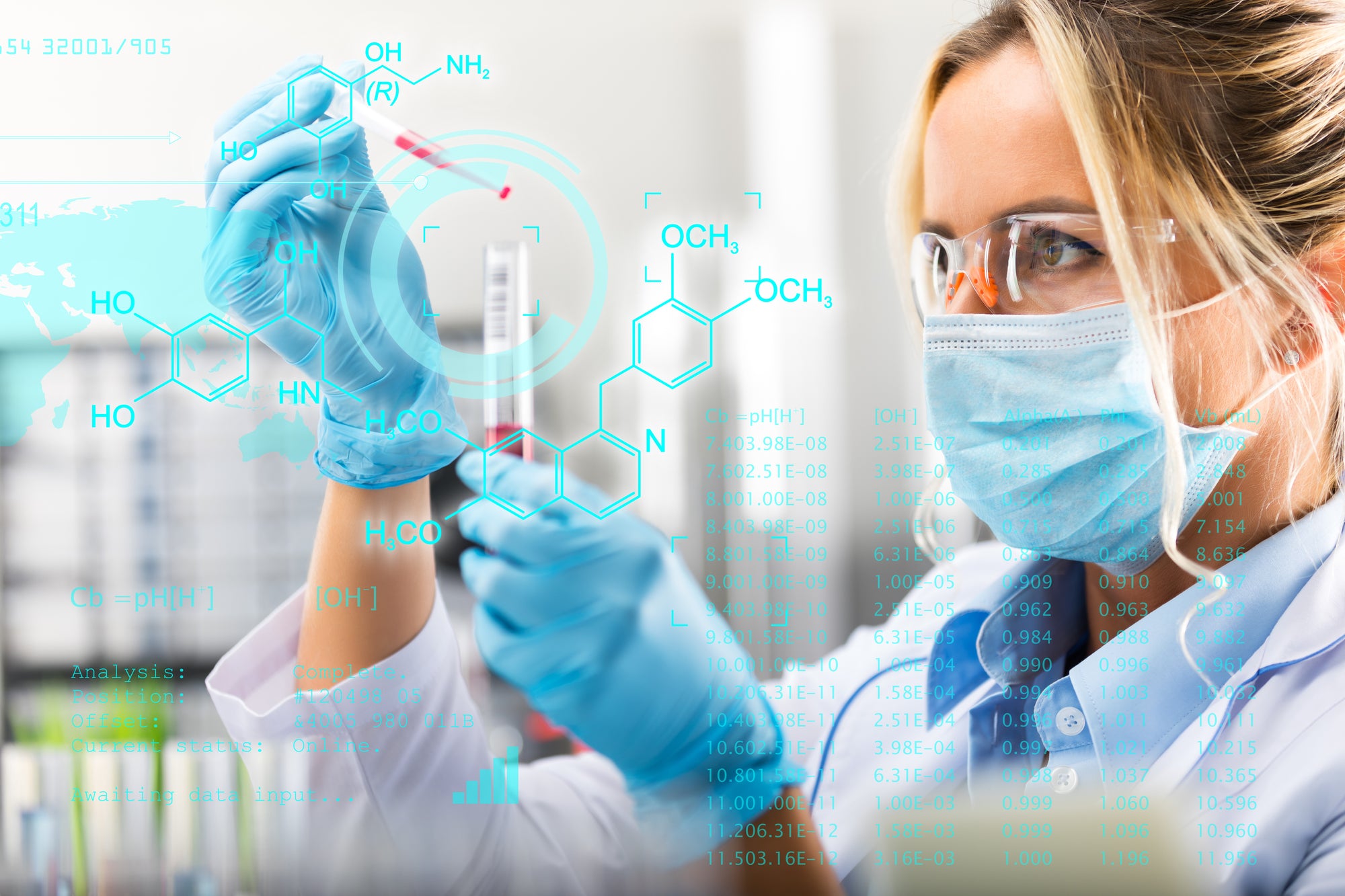3 SURPRISING NUTRIENTS FOR BONES
September 18, 2019 – Keni Reagan

NATURAL BIOLOGY NOTES: Natural Biology incorporates K1 & K2 and magnesium in EVEREST Earth & Sea Formula. For Collagen, studies demonstrate the best source is bone broth - which you may purchase or make yourself.
By Brianna Diorio
Believe it or not, our bones are actually living organism that are highly dynamic and require a mixture of proteins, vitamins and minerals in order to stay healthy and maintain their structural integrity.
Roughly 10 million Americans over the age of 50 have osteoporosis, while an additional 34 million have low bone mass, and osteoporosis is responsible for roughly 2 million broken bones and $19 billion in related costs every year!
Adequate nutrition is important in achieving and maintaining optimal bone mass, which can include nutrients such as vitamin D, vitamin C, vitamin K, magnesium, zinc, silicon and even collagen.
Vitamin K2
Vitamin K is actually a group of fat-soluble vitamins, K1 and K2.
Vitamin K2 can broken down into different categories depending on the length (Mk1-Mk 13). The “K” comes from its German name "koagulationsvitamin," or clot, and is an essential role for vitamin K. However, vitamin K also is essential for bone health. Research is finding that vitamin K plays an essential role in maintenance of bone strength, and it has been shown to have a positive impact on the bone metabolism.
Vitamin K is necessary for proper calcium synthesis, as well as helping to balance magnesium and vitamin D3. In fact, vitamin K helps you absorb calcium and makes sure it actually gets into your bones instead of into your arteries. Think of vitamin K2 as the traffic cop for calcium—vitamin K2 is needed to help calcium and other minerals bind to the bone matrix to strengthen bones and not stay in soft tissues where it can cause calcification in the wrong places.
K1 vs K2
Phylloquinone (K1) is found in leafy green plants, and menaquinone (K2) is found in animal meat and fermented foods. Your body can also synthesize K2 in your gut.
• K1- phylloquinone is found naturally in plants; it goes directly to your liver and helps maintain healthy blood clotting.
• K2- menaqunone is made by the bacteria that line your GI tract; K2 goes straight into your blood vessel walls, bones and tissues other than your liver, and is essential for bone strength, artery and blood vessel health.
Vitamin K increases the amount of a specific protein required to maintain bone calcium, reducing the risk of osteoporosis. Some studies on vitamin K have even found that high intakes of vitamin K can stop bone loss in people with osteoporosis. Your body needs vitamin K to use calcium to build bones. Vitamin K2 deficiency is also associated with insulin resistance, diabetes, rheumatoid arthritis, and may increase your risk of certain types of cancer.
Foods high in vitamin K2 include raw dairy products, such as certain cheeses, raw and grass-butter, small amounts in ghee and kefir, as well as natto and fermented vegetables, such as sauerkraut.
There is increasing evidence that vitamin K can improve bone health and reduce the risk of bone fractures, especially in postmenopausal women who are at risk for osteoporosis. There is also growing evidence that vitamin K has anti-inflammatory activity and can protect your cells from oxidative stress caused by free radical damage.
Vitamin K2 can be broken into two additional categories. Called MK-4 (menaquinone-4), it is a short-chain form of vitamin K2 found in butter, egg yolks, and animal-based foods. Try and avoid this in supplemental form, as it's only available in synthetic form. MK-4 also has a very short biological half-life—about one hour—making it a poor candidate as a dietary supplement.
MK-7 (menaquinone-7) is a longer-chain form found in fermented foods. There's a variety of these long-chain forms but the most common one is MK-7. The MK-7, which forms in the fermentation process, has two major advantages—it stays in your body longer and has a longer half-life, which means you can just take it once a day in very convenient dosing.
Collagen 101
Collagen comes from the Greek "kolla," or glue. It is our body’s most abundant protein and essentially is the “glue” in our body to support to our connective tissues, cartilage, bones, tendons and ligaments, as well as provide structural support to the skin. As we age, our body’s natural ability to produce collagen begins to decline. Because bone is a complex tissue, bone strength depends on the quality of bone tissue and several nutrients, such as collagen.
Type I collagen is the most abundant type of collagen in our body, and it is also the major structural component of our bones, organs and skin. Collagen provides a “framework” of sorts to our bone strength, which also allows bones to be strong and flexible. As collagen levels begin to decline (due to age, oxidative damage, stress, etc.) the cross-linking process of collagen in form strong bones begins to decline, which can lead to bone fragility, bone collagen abnormalities and osteoporosis.
Magnesium
Roughly 60 percent of our total body magnesium is stored in the bones; low levels of magnesium have been associated with an increased risk of osteoporosis fractures, as low magnesium levels can inhibit vitamin D and calcium homeostasis and absorption in bones.
A study published in the European Journal of Epidemiology found that men who had high serum magnesium levels were 44 percent less likely to have bone fractures.
Magnesium is essential to all living cells (which your bones are), including both osteoblasts and osteoclasts, a.k.a. bone building and bone breaking cells. In fact, bones of magnesium deficient animals have been found to be brittle and fragile.
Magnesium deficiency can contribute to the development of osteoporosis directly and indirectly by acting on crystal formations on bone cells, by impacting the secretion and activity of parathyroid hormone and promoting low-grade inflammation.
References:
https://www.ncbi.nlm.nih.gov/pmc/articles/PMC5494092/
https://www.ncbi.nlm.nih.gov/pmc/articles/PMC6040265/
https://www.ncbi.nlm.nih.gov/pmc/articles/PMC2577747/
https://www.ncbi.nlm.nih.gov/pmc/articles/PMC4928581/
https://www.ncbi.nlm.nih.gov/pmc/articles/PMC3330619/
https://link.springer.com/article/10.1007/s10654-017-0242-2
https://www.ncbi.nlm.nih.gov/pmc/articles/PMC3775240/
https://depts.washington.edu/bonebio/ASBMRed/matrix.html
 Brianna Diorio is a clinical nutritionist with an MS in human nutrition. She is also a holistic lifestyle coach and NASM CPT. Diorio advocates a holistic and naturopathic approach toward health and wellness, placing importance on proper digestive health, gluten-free living, herbal supplementation and using food as functional medicine as information for our cells. She is the global educator for Vitality Works and is based out of Costa Mesa, CA.3 S
Brianna Diorio is a clinical nutritionist with an MS in human nutrition. She is also a holistic lifestyle coach and NASM CPT. Diorio advocates a holistic and naturopathic approach toward health and wellness, placing importance on proper digestive health, gluten-free living, herbal supplementation and using food as functional medicine as information for our cells. She is the global educator for Vitality Works and is based out of Costa Mesa, CA.3 S
